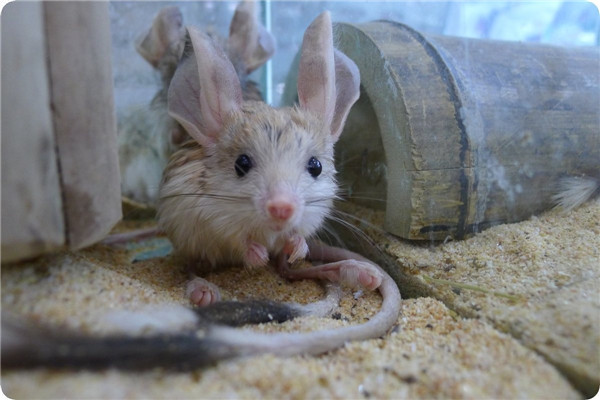What is the highest jumping mouse in the world?

Long-eared jumping rats live in North America and northern Eurasia. The [bai] is mostly active at night and in the morning and evening. When active at night, it mainly relies on its ear shell and hearing bubble to receive and amplify the faint sound around it to avoid natural enemies and identify the direction, therefore, the ear shell and hearing bubble are very well developed, and the ear length is more than 1.5 cm, the longest up to 6 cm.
Why can the long-eared jumping mouse jump so high?

The long-eared jumping mouse is a true "high jumper" in the rat world, born with a high jumping body, long hind feet, strong hind legs and a long tail to help maintain balance in mid-air. In order to catch the food they need, long-eared jumping rats have developed the ability to jump so high, their hind legs are very thin, but is the main reason they can jump so high, long-eared jumping rats hind legs are long and strong, so they can easily catch the most important food insects.
What is the difference between a long-eared jumping mouse and an ordinary mouse

The long-eared jumping mouse is one of the top 10 weird creatures that have evolved, and it differs greatly from the ordinary mouse in appearance and in the food it needs. The long-eared jumping mouse has a long tail and a pair of long ears, like the "rabbit" of the mouse world, their hind legs are much longer than ordinary mice, the smallest long-eared jumping mouse has a coin-sized weight and thumb-sized body length, which makes them look more cute than ordinary mice. Another important feature that distinguishes the long-eared jumping mouse from rats is that they feed on young plant leaves and insects, while rats eat a variety of things and will eat almost anything.
As the most important habitat of the long-eared jumping mouse is the desert, they are facing a more severe survival environment as the global climate change continues and the desert climate becomes more severe. At the same time, because of human development in desert areas, more natural enemies of the long-eared jumping mouse have been brought over, and their natural enemies have had a great impact on the survival of the long-eared jumping mouse, resulting in a rapidly decreasing number of long-eared jumping mice and has been classified as one of the endangered animal races.





